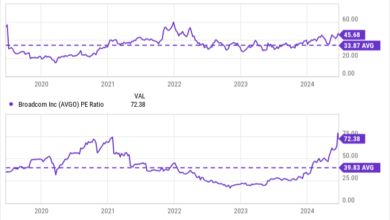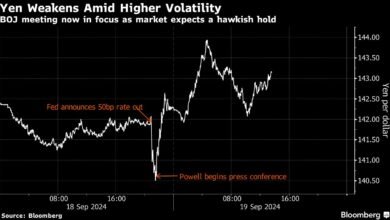Is Pfizer Stock in Trouble?

One stock that just can’t seem to catch a break of late is Pfizer (NYSE: PFE). Even though it posted some decent earnings numbers, investors can’t shake the fear that the business is facing daunting headwinds that could send its $145 billion valuation lower in the months and years ahead. And while the markets have done well overall, shares of Pfizer are down some 11% this year.
Is the healthcare stock in big trouble and headed for a greater decline, or are investors perhaps a bit too bearish on the business right now?
Are You Missing The Morning Scoop? Wake up with Breakfast news in your inbox every market day. Sign Up For Free »
Given how well Pfizer has performed in recent years due to its COVID-19 vaccine and pill (its revenue topped $100 billion in 2022), for many investors, it’s still seen as a stock whose best days may be behind it. Demand for its COVID vaccine is waning, significantly, and some investors may worry about a potential change in vaccine policy under the incoming Trump administration.
There’s no denying that the recent election results do appear to be weighing on investors, as Pfizer’s stock has hit a new low since then. Today, the stock is trading at a heavily discounted forward price-to-earnings multiple (based on analyst estimates) of less than 9, which suggests that investors are feeling a bit concerned about Pfizer’s future.
Through the first nine months of the year, Pfizer has generated revenue of $45.9 billion, up 2% overall. While that seems modest, it’s not a bad growth rate when you factor in a steep decline from COVID vaccine sales. Comirnaty, the company’s COVID vaccine, has generated sales of less than $2 billion, which represents a year-over-year decline of 66%.
Stronger results from its specialty care and oncology segments have helped Pfizer overcome headwinds from the vaccine side of its operations.
There could be greater declines in vaccine and COVID sales in the future for Pfizer, regardless of government policy. And that’s because attitudes have shifted in recent years, some people have become more skeptical about vaccines, and unless COVID becomes a significant health concern again, sales could continue to decline. But given the stock’s depressed valuation, I believe those risks have already been priced into its share price.
At this stage, if you’re investing in Pfizer, it’s because you’re optimistic about its growth opportunities outside vaccine-related revenue. The big growth opportunity may be in oncology, especially with Pfizer investing $43 billion to acquire Seagen, which makes antibody-drug conjugates that are more targeted treatment options than chemotherapy. Pfizer has been acquiring multiple businesses in recent years, and with a more diverse pipeline of drugs, those moves can offset the effects that looming patent cliffs and the decline in COVID sales will have on its operations in the long run.





